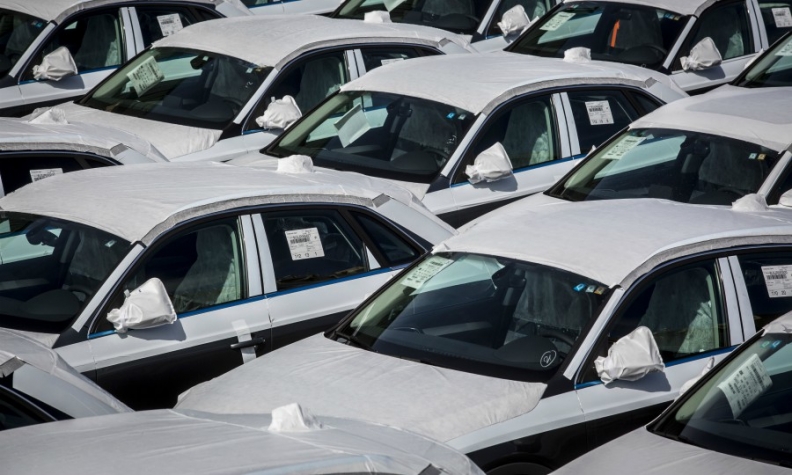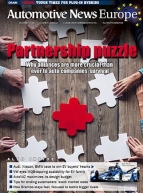FRANKFURT -- New-car sales fell 6.7 percent in Germany in December with Peugeot, Nissan, Renault, Ford and Volkswagen Group brands among losers.
Registrations were 237,058, the KBA motor vehicle authority said on Friday.
The German market is still recovering from the introduction of the Sept. 1 introduction of the Worldwide harmonized Light vehicle Test Procedure (WLTP) that resulted in bottlenecks of cars getting type approval. "The range of models remains limited because not all vehicles have been certified for delivery," said Peter Fuss, a partner at EY.
Volkswagen Group brand were affected. Sales of Seat and Porsche vehicles both fell 15 percent, Skoda sales were down by 12 percent and VW brand's volume was down 11 percent. Audi sales dropped 5.7 percent.
• Download file here for German sales in December, 12 months
It was a bad sales month for Peugeot, whose registrations plunged 43 percent and Nissan, whose sales fell 39 percent. Renault sales were down 21 percent, while Ford dropped 12 percent. Land Rover's volume declined by 15 percent. Toyota sales were down 9.7 percent and Opel registrations fell 9.1 percent.
Brands that gained sales were Volvo (up 27 percent); Mitsubishi (up 24 percent); Mercedes-Benz (up 22 percent); Fiat (up 20 percent); and Jaguar (up 16 percent).
Diesel falls again
Full-year sales were down 0.2 percent to 3.44 million.
Sales of diesel cars continued to fall as cities ban such vehicles from city centers to reduce NOx pollution.
Diesel's market share fell to 32.3 percent last year from 38.8 percent in 2017. Gasoline cars' share increased to 62.4 percent from 57.7 percent. Demand for hybrid cars rose by 53.8 percent and electric car sales were up 43.9 percent. However electric vehicles made up only 1 percent of new-car registrations.
"Registrations of diesel cars reached their lowest point since 2000," EY's Fuss said.
Reuters contributed to this report

